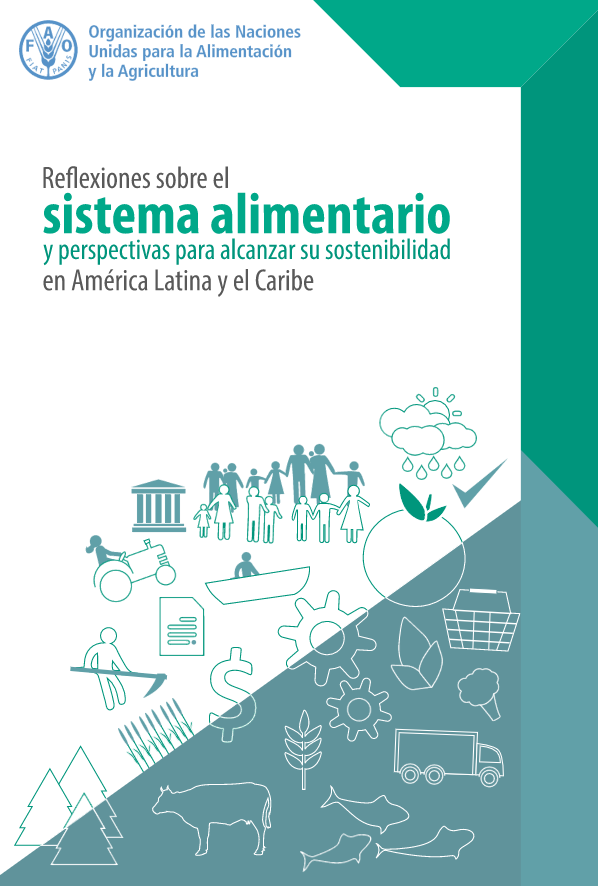Location
Latin America and the Caribbean was the first region to commit to the complete eradication of hunger through the 2025 Hunger-Free Latin America and the Caribbean Initiative. This renewed political commitment is based on the full conviction that eradicating hunger in the Region is an achievable target.
Latin America and the Caribbean is at the forefront of the global fight against hunger. It is the Region that has made the most progress in reducing the percentage and total number of people suffering from hunger in the past 20 years.
Thanks to successful public policies implemented by Governments, coupled with economic growth, hunger fell from 14.7% in 1990-93 to 7.9% in 2010-2013. Child malnutrition was also halved in the same period, while the total number of undernourished people decreased from 59 million in 1990 to 47 million in 2013.
The Region was the first to commit to the complete eradication of hunger through the 2025 Hunger-Free Latin America and the Caribbean Initiative (HFLACI). This renewed political commitment is based on the full conviction that eradicating hunger in the Region is an achievable target.
Eight Member Nations have already fully eradicated hunger, 15 have achieved the first Millennium Development Goal of reducing by half the proportion of people suffering from hunger, and 11 have also achieved the World Food Summit target of reducing the proportion as well as the total number of undernourished people.
Food security policies and programmes, as well as the Region's role as one the world's main food producers, place Latin America and the Caribbean at the forefront of the global fight against hunger. Many of its flagship initiatives are being adapted to other world Regions in strengthening global food security.
The FAO Regional Office supports Member Nations by monitoring food security levels; assisting in the design and implementation of hunger-eradication strategies, laws and programmes; and promoting family farming, agricultural and rural development and climate-change adaptation policies.
FAO places a special emphasis on vulnerable communities - with a particular focus on women, indigenous and native peoples - and works closely with Member Nation Governments, civil society and international cooperation stakeholders to empower social actors and local communities in exercising a leading role in their own development.
Members:
Resources
Displaying 11 - 15 of 48Reflexiones sobre el sistema agroalimentario y perspectivas para alcanzar su sostenibilidad en América Latina y el Caribe
El presente documento es producto de un proceso de investigación documental y reflexión colectiva de varios años y tiene como objetivo aportar conceptual y metodológicamente al abordaje de los sistemas alimentarios en la región, desde una mirada más integral que resalte su rol determinante en el fortalecimiento de la seguridad alimentaria y nutricional y el desarrollo de los países.
Atlas de Cobertura del Suelo de Uruguay. Cobertura de Suelo y Cambios 2000-2011
Este Atlas proporciona información confiable y actualizada para el conocimiento de la cobertura del suelo en el Uruguay y el análisis de sus cambios a partir del año 2000. El objetivo del mismo es contribuir al monitoreo informado del territorio usando el Sistema de clasificación estandarizado LCCS (Land Cover Classification System) de FAO.
Atlas de Cobertura del Suelo de Uruguay. Cobertura de Suelo y Cambios 2000-2011
Este Atlas proporciona información confiable y actualizada para el conocimiento de la cobertura del suelo en el Uruguay y el análisis de sus cambios a partir del año 2000. El objetivo del mismo es contribuir al monitoreo informado del territorio usando el Sistema de clasificación estandarizado LCCS (Land Cover Classification System) de FAO.
Atlas de Cobertura del Suelo de Uruguay. Cobertura de Suelo y Cambios 2000-2011
Este Atlas proporciona información confiable y actualizada para el conocimiento de la cobertura del suelo en el Uruguay y el análisis de sus cambios a partir del año 2000. El objetivo del mismo es contribuir al monitoreo informado del territorio usando el Sistema de clasificación estandarizado LCCS (Land Cover Classification System) de FAO.
Fortalecimiento de Políticas agroambientales en países de América Latina y el Caribe a través de Diálogo e Intercambio de Experiencias Nacionales (GCP/RLA/195/BRA)
El Taller N acional de Formulación de Directrices Voluntarias de la FAO para Políticas Agroambientales en América Latina buscó reunir las percepciones de expertos en diferentes áreas (pesca, pecuario, agricultura, bosques, seguridad alimentaria y nutricional) para que, no sólo se congregaran entorno a preguntas detonantes que dieran cabida al debate sobre el contexto actual nacional, sino que se logrará apunta r a puntos conver gentes, divergentes y se lo grara llegar a una sistematización de recomendaciones.


